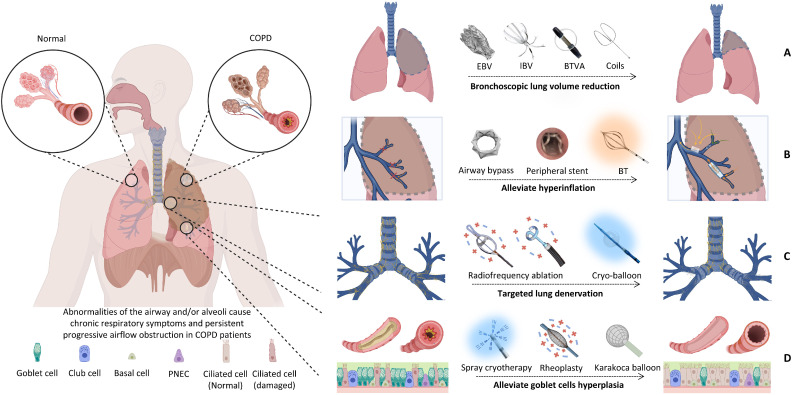
# Innovation in COPD Management: AI-Enhanced Urine Test Forecasts Flare-Ups a Week Ahead
Chronic obstructive pulmonary disease (COPD) is a significant global health issue, resulting in millions of fatalities annually. This condition is marked by ongoing respiratory issues and restricted airflow, encompassing ailments such as chronic bronchitis and emphysema. For individuals experiencing this disease, exacerbations—or abrupt intensifications of symptoms—pose a serious risk, frequently leading to hospital stays, lasting lung damage, and even heightened mortality rates. Disturbingly, many exacerbations arise with minimal notice, putting patients at risk for severe health challenges.
Nonetheless, a pioneering study featured in *ERJ Open Research* brings optimism for a new approach to proactive, customized care. Researchers from the University of Leicester in the UK have created a non-invasive, urine-based test integrated with artificial intelligence (AI), capable of forecasting a possible COPD exacerbation up to a week before symptoms manifest. This advancement has the potential to transform the current reactionary method of COPD management, paving the way for early intervention and significantly enhancing patient outcomes.
## Comprehending COPD and Its Global Influence
The World Health Organization (WHO) states that COPD stands as the third leading cause of death globally. Presently, millions endure chronic and progressive symptoms such as ongoing coughing, breathing difficulties, and mucus production. For a considerable number, the condition deteriorates over time, and exacerbations—occasionally triggered by infections, allergens, or environmental pollutants—can hasten this decline. In severe cases, a COPD flare-up may necessitate hospitalization and can lead to irreversible lung damage.
Given the unpredictable nature of exacerbations, managing the disease effectively has been difficult. Up until now, healthcare providers and patients have relied on limited methods to forecast when a flare-up might occur, primarily monitoring the progression of existing symptoms.
However, this scenario could be dramatically altered with the integration of predictive AI technology into standard care practices.
## AI and Urine Biomarkers: A New Frontier in COPD Management
The research led by Professor Chris Brightling employs a blend of artificial intelligence (AI) and straightforward at-home urine tests to foresee COPD exacerbations well ahead of time. The essence of this method is in identifying specific biological changes, referred to as biomarkers, that indicate underlying alterations within the body even before the patient notices any symptoms.
### The Science Underlying the Test
The testing technique is incredibly accessible. Researchers discovered five biomarkers present in urine samples that change according to an individual’s likelihood of experiencing a COPD flare-up. Patients utilize diagnostic dipstick tests, which are easy to perform at home independently. These dipstick outcomes are uploaded to a mobile application daily, where AI software—specifically an artificial neural network (ANN)—evaluates shifts in biomarker levels over time.
An ANN is a form of AI that mimics the structure of the human brain, enabling it to “learn” patterns from extensive and intricate datasets. Here, the AI is trained to differentiate early biological indicators of COPD exacerbation from normal variances in the patient’s situation. This capability allows it to predict, with an average lead time of about seven days, when a significant flare-up is imminent.
By detecting flare-ups before symptoms manifest, both patients and healthcare providers gain an essential opportunity to implement early actions. This could involve modifying treatment plans, managing environmental factors (such as avoiding pollution or extreme weather), or initiating medical measures to prevent a potentially serious escalation of COPD symptoms.
## A Revolutionary Study: The Journey to the AI-Predictor
The research was conducted in two crucial phases:
1. **Identifying COPD Biomarkers:** In the first phase, the team examined urine samples from 55 patients to pinpoint biomarkers associated with COPD exacerbations. Biomarkers are molecules present in urine, blood, or other bodily fluids that reflect a normal or pathological state. In this endeavor, the researchers identified five key biomarkers that fluctuated in response to COPD exacerbations.
2. **Real-Time Daily Monitoring:** In the second phase, 105 patients took part in a six-month monitoring program, where they conducted daily dipstick tests at home. Through AI analysis of these real-time results, the ANN model was refined to predict flare-ups, marking a significant breakthrough in detecting exacerbations prior to symptom onset.
“The benefit of urine sampling is that it’s relatively swift and simple for patients to perform at home daily,” Professor Brightling noted. More complicated procedures like blood draws or clinical visits may not be practical for daily monitoring, while the urine test offers ease, increasing the likelihood that patients will comply with the protocol.
### Early Intervention and Tailored Care
The implications of integrating this AI-driven test into COPD management are significant. Not only can it help prevent patients from suffering severe deterioration, but it also facilitates personalized treatment approaches. For example, patients identified with high-risk biomarkers can implement preventive strategies such as adjusting medications or steering clear of triggers (e.g., allergens or pollutants).
Furthermore, as the AI model processes data from a larger population of patients, it